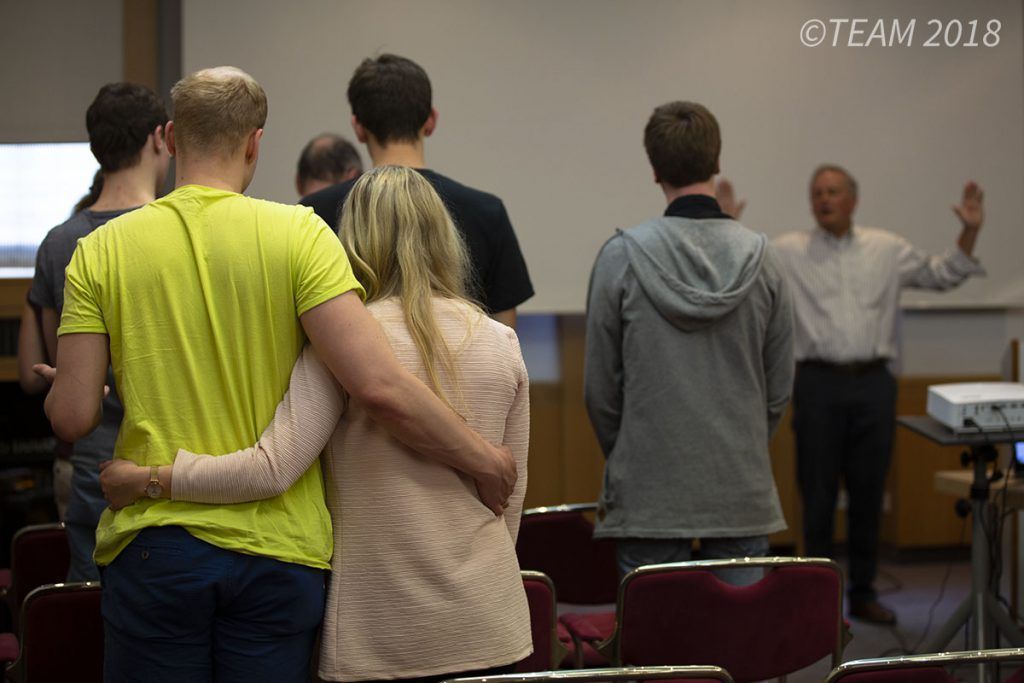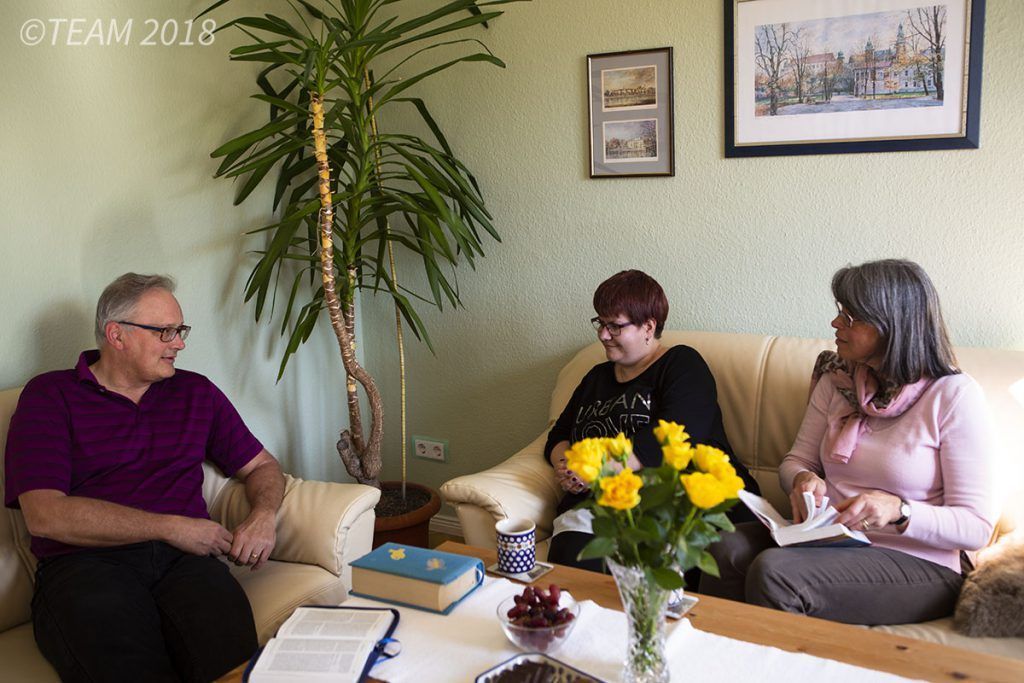So you’re thinking of planting a church ? Perhaps you’re wondering whether you’ve got the right stuff. When my wife and I started planting churches in Europe in 1992, we didn’t know what all we were getting into. But along the way, we’ve learned some key character traits every church planter needs. Today, I’d like to describe just a few.
Diligence
When we left for Europe in 1992, my dad had just started his own business — an auto-painting and body shop. I heard firsthand how much time, effort and money it cost him. I can assure you, he had to work a lot more than 40 hours per week during the first few years just to keep the business going. Planting a church is similar to starting a business. It takes a lot of personal capital.
For example, a new church needs advertising materials that are tailored to the church plant and the people it’s trying to reach. Up until recently, I’ve never had a team member who was able to design flyers or a church home page, so I’ve done the work myself.
I’ve created and managed home pages for two church plants (in two languages in one church). I’ve also published flyers and created posters for numerous church events over the years. It’s been a lot of work! And keep in mind that public relations is just one small piece of the church-planting pie.
Before I went to seminary, I worked as an engineer at NASA. You’ve no doubt seen at least one space shuttle or rocket launch. During the first seconds after liftoff, incredible energy is expended to lift the massive weight of the rocket just a few feet off the launch pad.
The first few years of a church plant is similar to those first seconds after liftoff . Usually you have to expend a lot of energy before the thing starts to fly. If you aren’t willing to work hard, there’s a good chance your church will never get off the ground.
Purposefulness
Why do you want to plant a church? Believe it or not, there are a lot of lousy reasons for starting a new church. If your primary motivation isn’t biblical, forget it.

The foundation for church planting must be biblical, and church planters must build everything else they do from that foundation.
For years, my wife and I have been directed by a simple purpose statement: We aim to start dynamic churches that will be known for their atmosphere of grace and their concern for outsiders . Certainly, there’s more to it than that, but virtually everything we do in church planting has its basis in that statement.
Church plants need a wide variety of activities and events to help fulfill their purpose. Clearly defining your purpose for starting a church gives you a framework for deciding what activities you’re going to put on the calendar.
Defining your purpose has another advantage. It helps you decide what NOT to do and to whom you say “no.” One of the leader’s biggest challenges in a church plant is to keep the ship on course.
It’s easy to get distracted and sidetracked by the cacophony of clashing visions. Keeping your purpose clearly in mind and reviewing it regularly helps you stay on course and fulfill your purpose.
Teamwork
God does call some to be lone rangers in difficult pioneer settings; however, most of us need to work in a team . It’s biblical!
In a church plant, there is a myriad of tasks that need to be done on a regular basis. I liken it to juggling. Sometimes it seems almost impossible to keep the 10 to 12 different balls in the air. When you work in a team, you have others to help share the load.
And although you may be tempted to do everything yourself — because no one else will do it as well as you can — don’t. As Peter reminds us: “Each one should use whatever gift he has received to serve others, faithfully administering God’s grace in its various forms.”

Working as a part of a team is vital in church planting. That way no one person is doing everything on his or her own, and burnout can be more easily avoided.
God may have given you certain gifts necessary for planting churches. But the members of your team are gifted in ways you are not. Thank God for that! Don’t squash others’ potential by trying to do everything yourself. Let your team members use and develop their own gifts — and become conduits for God’s grace in the process.
In our previous church plant, we had a teammate who was a good counselor , but hated public speaking . So my wife and I let her do most of the counseling while we led our public meetings. Because we had so few musicians in that church, Anne and I often led worship, too. Anne led the singing; I played the guitar.
In our current church plant in Dresden, Germany , we have a number of good musicians and a few good public speakers. We gladly let them emcee our meetings and lead worship whenever possible.
Our newest TEAM missionary, Lexi, has a bachelor’s degree in youth ministry and Bible, a master’s degree in counseling and, I jokingly say, a doctorate in GoPro video making. All these gifts will be helpful in our church plant.
One of the sponsors of our regional evangelistic campaign needed some quick help editing two companies’ promotional videos that will be shown during the campaign. I didn’t want to lose him as a sponsor, but I didn’t have the expertise or time to help him, so I asked Lexi to take on the project. She did a great job, and the businessman was thrilled with the final product!
As Harry Truman once said: “It’s amazing what you can accomplish when you don’t care who gets the credit.” Good church planters are not out to make names for themselves ; ultimately our efforts to plant churches should bring glory to God . And a healthy, synergistic team brings glory to God!




















